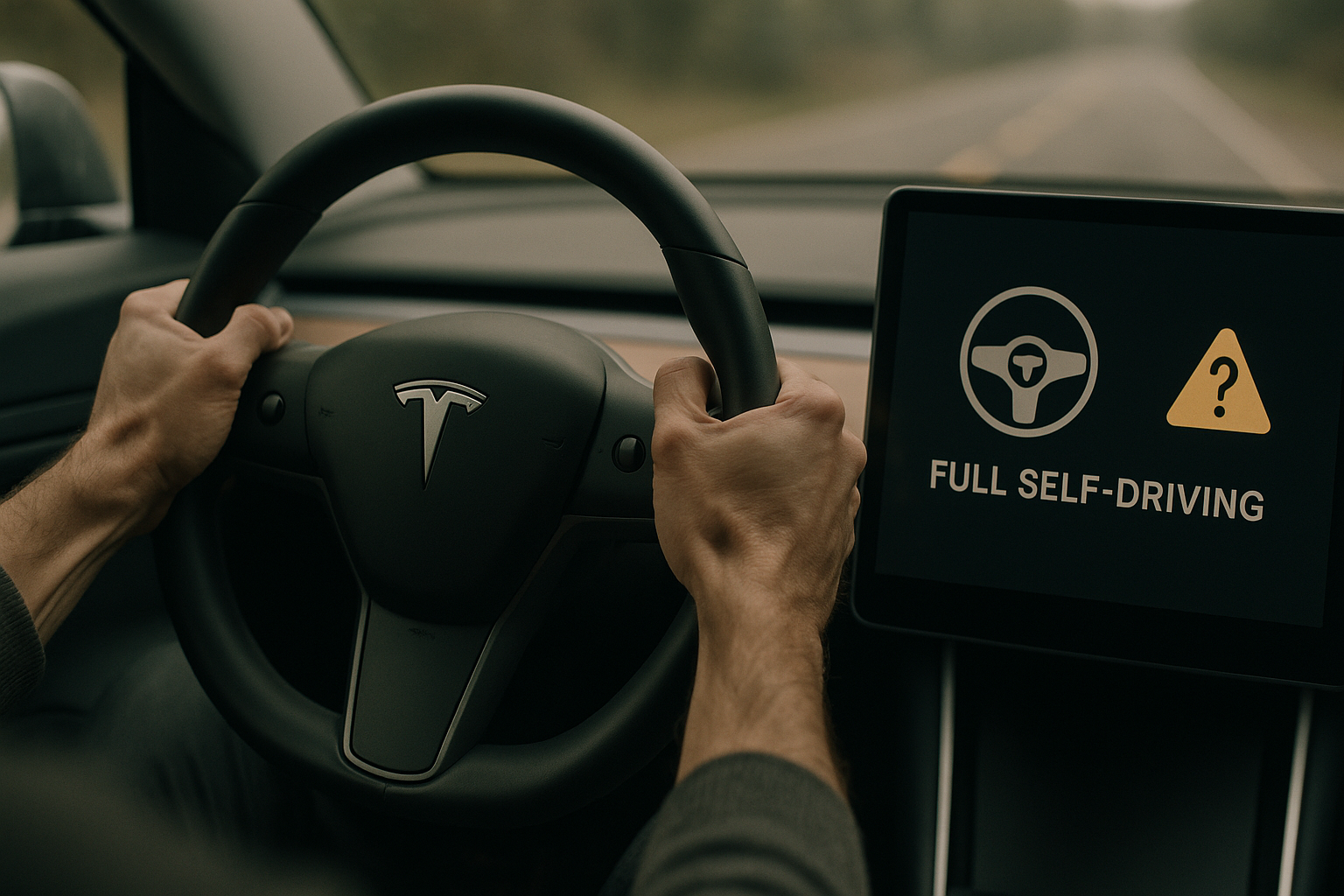Most automakers would kill to have a feature that makes their vehicles 14% more appealing to consumers. Problem is, that's the exact percentage of Americans who say Tesla's Full Self-Driving technology would make them more likely to buy one of the company's cars.
That's it. Just 14%.
I've been tracking consumer sentiment on autonomous driving technology since 2019, and this latest data from the Electric Vehicle Intelligence report feels like a watershed moment. Tesla has poured years—and billions—into developing this technology, and the market's collective response seems to be a resounding "meh." Or worse.
"The drop in the company's brand reputation this year is remarkable," said Evan Roth Smith from Slingshot Strategies, which conducted the survey.
Remarkable indeed. And not in the good way.
What's happening here represents what I'd call a trust deficit. Tesla's engineers have created genuinely sophisticated technology (I've experienced it firsthand on several test drives), but the more advanced it gets, the more consumers seem to back away. It's like watching someone offer you an increasingly elegant and expensive tightrope to walk across the Grand Canyon—technically impressive, but no thanks.
Think about it. Most of us have had that momentary panic when adaptive cruise control doesn't recognize a merging vehicle quickly enough or lane assist bounces us between highway lines like a pinball. Now multiply that anxiety by about a thousand, and you can understand why folks aren't rushing to hand over control to algorithms named after cartoon robots.
The messaging hasn't helped. Tesla wants to have its cake and eat it too—selling something called "Full Self-Driving" while simultaneously requiring drivers to remain vigilant and ready to take over. Look, either the car drives itself or it doesn't. The cognitive dissonance is giving consumers whiplash.
(And don't get me started on the "Supervised" qualifier they've tacked on. That's like marketing "Completely Waterproof Umbrellas (That Might Leak).")
What's particularly fascinating—and a bit ironic—is that this consumer skepticism comes when the actual technology has made genuine strides. During a demo last fall, I watched a Tesla navigate a complex intersection in downtown San Francisco that would've given most human drivers pause. The system is improving. The public's faith in it isn't.
Tesla now faces what business professors would call a classic strategic dilemma. They've invested so heavily in FSD that backing away would be tantamount to admitting failure, yet continuing to push it as their main selling point seems to be actively turning customers off.
Can they pivot? Sure. Should they? Probably.
For investors, this raises uncomfortable questions. How much of Tesla's astronomical market cap is built on the promise that they'll eventually crack the autonomous driving code and dominate the future of transportation? If consumers are actually growing more skeptical rather than less, that's... troubling.
Tesla bulls might argue—and some have, to my face, rather forcefully—that consumer attitudes will shift once the technology proves itself. Remember when people thought touching smartphone screens instead of physical keyboards was crazy? Now we can't imagine anything else.
But there's a crucial difference. When your iPhone autocorrects embarrassingly, you send a weird text. When autonomous driving fails... well, the stakes are considerably higher.
And each incident gets amplified. A Tesla on Autopilot crashes into a parked emergency vehicle, and it's front-page news. A human driver does the same thing (which happens with depressing frequency), and it barely makes the local police blotter.
The cruelest irony? Tesla's biggest obstacle with FSD might not be the technology itself but persuading humans to trust it. They're trying to solve for human error by removing humans from the equation, only to find that humans aren't ready to be removed.
Sometimes the technically superior solution isn't the winning one. Just ask anyone who invested heavily in Betamax, HD DVD, or—for the real tech history buffs among us—the technically superior Amiga computer.
For Tesla, the road ahead looks bumpy. And for now at least, customers seem to prefer keeping their hands firmly on the wheel.
